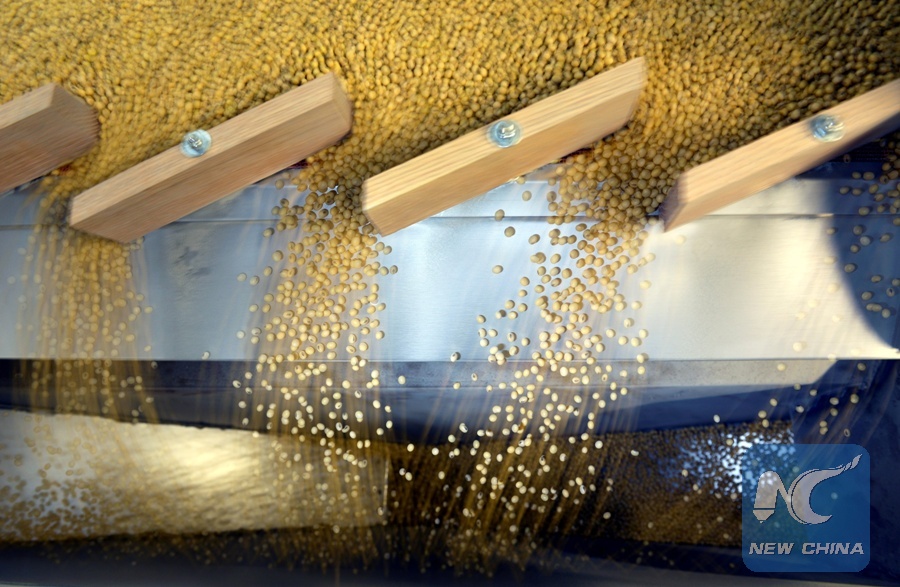
Soybeans being sorted according to their weight and density on a gravity sorter machine at facility in Fargo, North Dakota, the United States, Dec. 6, 2017. (REUTERS Photo)
CHICAGO, May 14 (Xinhua) -- U.S. soy growers reiterated on Monday their opposition to using unilateral tariffs to address U.S. trade deficits with China, urging Washington to work out a solution through negotiation.
"The United States has been at the table with China 11 times now and still has not closed the deal," said Davie Stephens, president of the American Soybean Association (ASA) and a soy grower from Kentucky.
"What that means for soybean growers is that we're losing. Losing a valuable market, losing stable pricing, losing an opportunity to support our families and our communities," he was quoted as saying in a news release on the ASA website.
The ASA has consistently opposed using unilateral tariffs to address U.S. trade deficits with China and other countries, said the release. Instead, it supports negotiating trade agreements and other measures that can increase U.S. agricultural exports, including soybeans.
"The soybean market in China took us more than 40 years to build, and as this confrontation continues, it will become increasingly difficult to recover. With depressed prices and unsold stocks expected to double by the 2019 harvest, soybean farmers are not willing to be collateral damage in an endless tariff war," Stephens added.
John Heisdorffer, ASA chairman and a soy grower from Iowa, said farmers cannot withstand another year "in which our most important foreign market continues to slip away and soybean prices are 20 to 25 percent, or even more, below pre-tariff levels."
"Our patience is waning, our finances are suffering, and the stress from months of living with the consequences of these tariffs is mounting," said Heisdorffer.
U.S. soy growers cannot support "continuing and escalating the use of tariffs," said the release, because the trade war continues to threaten soy prices and, "if not resolved, farmers' ability to stay in business."

